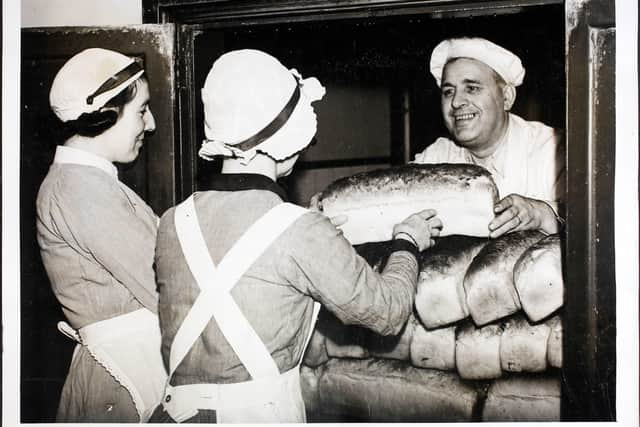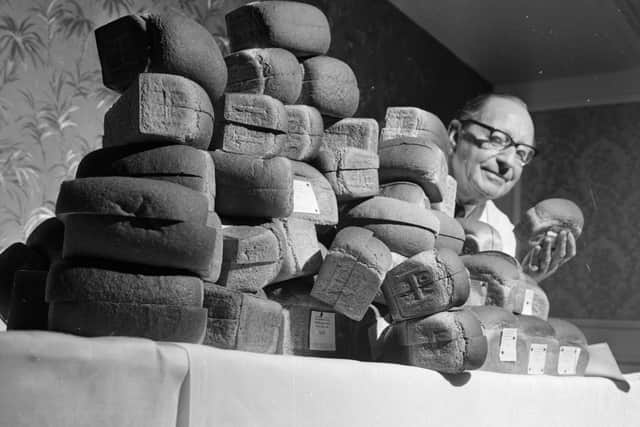Bread made from potatoes was the original Great British Bake-Off
Every town had its own bakery and until the Second World War, bread and other baked goods were often delivered in the same way as milk, by roundsmen with their own van – or in some rural areas, a horse and cart.
But it was a commodity that could not always be taken for granted. During the First World War, when wheat was in short supply, peas, arrowroot, beans, rice, oats and even parsnips were used as substitutes. At one point, bakers were ordered to fill out their dough with potatoes.
Advertisement
Hide AdAdvertisement
Hide AdIt was not until 1917 that regulations were introduced on what could legitimately be called bread. The same rules regulated the shape of loaves, restricted the sale of stale bread and forbade the production of “fancy pastries” until the war was over.


Industrialisation took hold in the interwar years, with the first bread slicing machine demonstrated in 1928 at a trade fair in the US. Within five years, eight out of 10 loaves in America were pre-wrapped and sliced, and the expression, “the best thing since sliced bread”, entered the language. In Britain, wrapping was prohibited during the Second World War but caught on quickly when bread came off the ration.
But while that innovation soon found favour, another would take decades to take hold. As early as 1930, food scientists had spoken of the benefits of wholemeal bread, but the British preference remained overwhelmingly for white loaves. Only Hovis bucked the trend, milling high wheatgerm flour and selling it to local bakers along with branded loaf tins that famously left the name embossed on the side.
Editor’s note: first and foremost - and rarely have I written down these words with more sincerity - I hope this finds you well.
Advertisement
Hide AdAdvertisement
Hide AdAlmost certainly you are here because you value the quality and the integrity of the journalism produced by The Yorkshire Post’s journalists - almost all of which live alongside you in Yorkshire, spending the wages they earn with Yorkshire businesses - who last year took this title to the industry watchdog’s Most Trusted Newspaper in Britain accolade.


And that is why I must make an urgent request of you: as advertising revenue declines, your support becomes evermore crucial to the maintenance of the journalistic standards expected of The Yorkshire Post. If you can, safely, please buy a paper or take up a subscription. We want to continue to make you proud of Yorkshire’s National Newspaper but we are going to need your help.
Postal subscription copies can be ordered by calling 0330 4030066 or by emailing [email protected]. Vouchers, to be exchanged at retail sales outlets - our newsagents need you, too - can be subscribed to by contacting subscriptions on 0330 1235950 or by visiting www.localsubsplus.co.uk where you should select The Yorkshire Post from the list of titles available.
If you want to help right now, download our tablet app from the App / Play Stores. Every contribution you make helps to provide this county with the best regional journalism in the country.
Sincerely. Thank you.
James Mitchinson, Editor
Comment Guidelines
National World encourages reader discussion on our stories. User feedback, insights and back-and-forth exchanges add a rich layer of context to reporting. Please review our Community Guidelines before commenting.